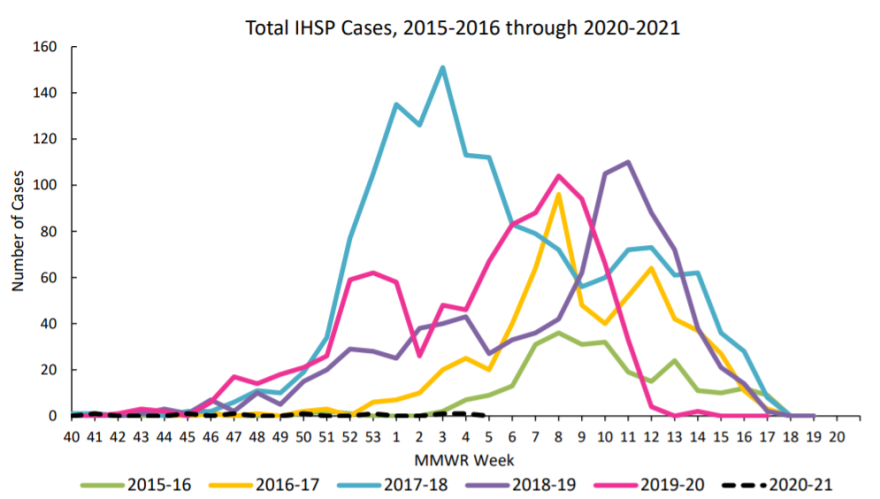The flu virus has been historically inactive this season in Michigan and across the country.
Only seven people have been hospitalized for the flu in a sample of counties tracked by the state health and human services departmentthis season, compared to almost 500 in the same counties at this timelast year.
Dr. Jennifer Morse, the medical director for three public health districts in Michigan, said the primary reason for the flu’s dip is that the same steps people take to slow the spread of the novel coronavirus – wearing masks in public, keeping six feet apart from other people and staying home when sick – also weakened the flu’s ability to infect new hosts.
“These mitigation measures really do work to prevent droplet-borne and airborne illnesses,” she said.
A heavy flu season alonecan overwhelm individual hospitals, even without another simultaneous pandemic.
“There are years where our ICU beds were at capacity, near capacity, running out of ventilators at times, just due to influenza,” Morse said. “To imagine that on top of what we’ve seen with COVID at the same time, we were so terrified that was going to happen.”
Nationally, flu activity has also dropped precipitously. The federal Centers for Disease Controlreported this month that the rate of people being hospitalized for the virus was “lower than rates for any season since routine data collection began in 2005.”
Morse said trying to take on a typical flu season on top of the COVID-19 pandemic “would have been disastrous” for health care systems in Michigan.
In 2019, the most recent year for which the CDC has complete data, 1,662 people in Michigan died of the flu or pneumonia. Nearly 10 times as many have died of COVID-19 since the pandemic began.
Morse andother public health experts said there could be other factors depressing the flu’s toll this season. Flu vaccines could be especially effective this year. The strains of the virus in circulation could be unusually weak. But they said the primary reason for the flu’s lack of activity is masking, distancing, and reduction of travel.
Morse said she hopes some of those measures stick around, even after the pandemic passes.
“I do think it would be good for people to voluntarily wear masks or consider staying home more often if they’re sick. We’ll have to see how the culture changes,” she said.





